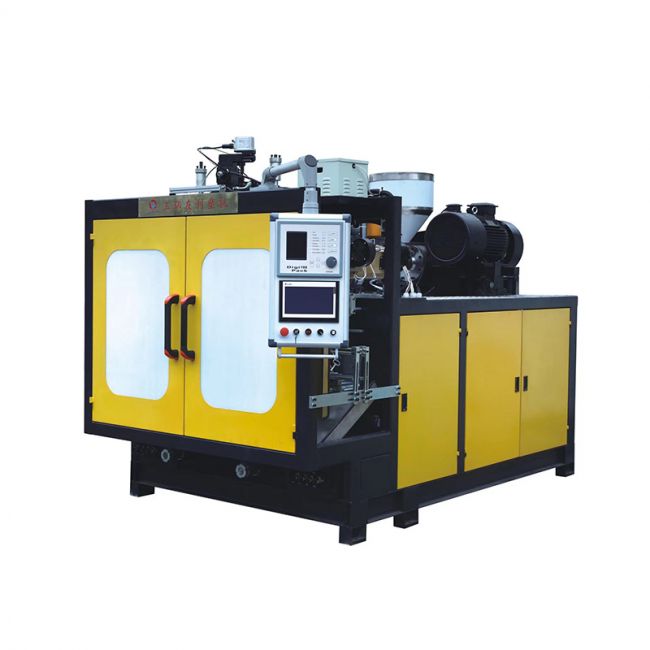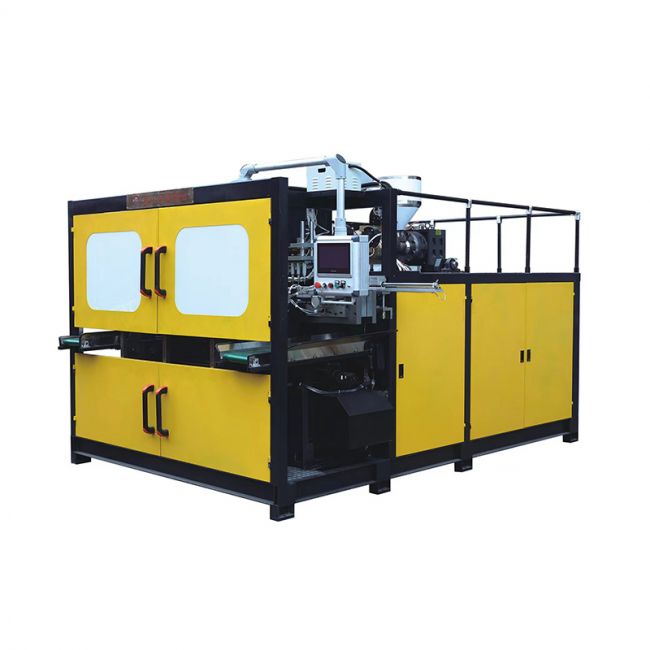Blow Molding Machine Buying Guide
A blow molding machine is an essential piece of equipment in the manufacturing industry, commonly used to create hollow plastic parts and containers. When it comes to buying a blow molding machine, there are several factors to consider to ensure you make the right choice. In this buying guide, we'll explore the key considerations to help you select the most suitable machine for your specific production needs.
1. Machine Type and Process
Blow molding comes in several types, each with its unique process:
Extrusion Blow Molding: Ideal for producing large containers, this process involves extruding a parison (a tubular form) and then blowing air into it to shape the container. It's used for items like milk jugs and automotive parts.
Injection Blow Molding: This process combines injection molding and blow molding to create small, complex parts with precise tolerances, such as pharmaceutical containers.
Stretch Blow Molding: Commonly used for PET bottles, this process stretches a preform before blowing it into the desired shape, providing clear and lightweight containers.
Continuous Extrusion Blow Molding: Suitable for high-speed production, this process involves a continuous extrusion of parisons and is often used for packaging containers.
Determine which process aligns with your product requirements and production volumes before choosing a machine.
2. Production Capacity and Size
The size and production capacity of the blow molding machine are critical factors. These considerations will depend on the type and volume of products you intend to manufacture. Key aspects to evaluate include:
Output Capacity: How many units per hour or minute do you need to produce? Match the machine's production capacity with your demand.
Bottle or Part Size: Ensure that the machine can accommodate the size and shape of the products you plan to make. Some machines are designed for small containers, while others are more suitable for larger items.
Number of Cavities: Machines come with single or multiple cavities, enabling the simultaneous production of several items. Select the number of cavities that suits your production needs.
Machine Footprint: Consider the available space in your production area. Blow molding machines come in various sizes, so make sure the machine can fit comfortably in your workspace.
3. Material Compatibility
The choice of materials is critical in blow molding, as it impacts the quality and characteristics of the final product. Consider the following material-related factors:
Material Type: Different materials, such as HDPE, LDPE, PET, and PVC, require specific machine settings and capabilities. Ensure the machine you choose is compatible with the materials you plan to use.
Material Grade and Quality: High-quality materials are essential for producing consistent and durable products. Check if the machine can process the grade and quality of material you intend to use.
Multi-Layer Capabilities: If you need to create multi-layer containers for improved barrier properties or other purposes, confirm whether the machine can handle multi-layer extrusion.
Material Handling and Control: Some machines offer advanced material handling and control systems, allowing precise temperature and pressure regulation. These features can enhance the quality of your products.
4. Automation and Control
Modern blow molding machines come with various automation and control features to improve efficiency and consistency:
Automation Level: Determine the level of automation you require. Some machines have manual controls, while others offer semi-automatic or fully automated operation. The choice often depends on the scale of your production.
Control System: Look for machines with user-friendly control systems that allow you to adjust parameters like temperature, pressure, and cycle time easily. Advanced control systems can enhance production quality.
Quality Monitoring: Some machines come with quality monitoring and inspection systems that can identify defects and inconsistencies during production. This can help reduce waste and improve product quality.
Energy Efficiency: Evaluate the machine's energy consumption and efficiency. Energy-efficient machines can lead to cost savings in the long run.
5. Manufacturer Reputation and Support
Selecting a reputable manufacturer is essential to ensure product quality and reliable support:
Manufacturer Reputation: Research manufacturers and check their reputation in the industry. Reading customer reviews, requesting references, and assessing their track record can help you gauge their reliability.
Service and Support: Consider the availability of customer support and service options. A manufacturer with a global service network can offer quick assistance and maintenance when needed.
Warranty: Review the warranty terms provided by the manufacturer. A comprehensive warranty can provide peace of mind and protect your investment.
Training and Documentation: Ensure the manufacturer offers training for your staff and comprehensive documentation for the machine's operation and maintenance.
6. Budget and Financing
Determine your budget for purchasing a blow molding machine. Costs can vary significantly based on factors like machine type, production capacity, and automation level. It's important to find a balance between your budget and the features you need. Consider various financing options, such as lease agreements, loans, or grants that may be available to help you acquire the machine.
7. Safety and Compliance
Safety is paramount in any manufacturing process. Ensure the machine adheres to safety standards and regulations, such as OSHA requirements. Additionally, verify that the machine's safety features, such as emergency stop buttons and safety guards, are in place and functional.
In conclusion, buying a blow molding machine requires a thorough assessment of your production needs, material compatibility, automation and control features, manufacturer reputation and support, budget, and safety considerations. By carefully evaluating these factors, you can select the right machine that not only meets your production requirements but also offers efficiency, reliability, and safety in your manufacturing processes.
168
0
0




Comments
All Comments (0)